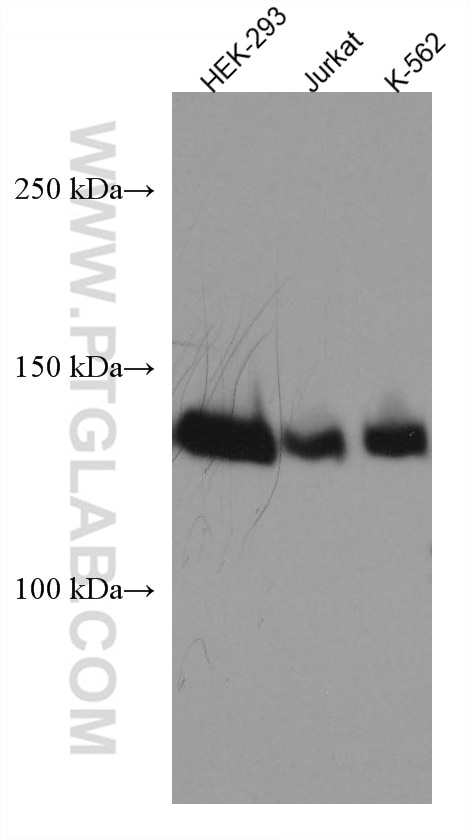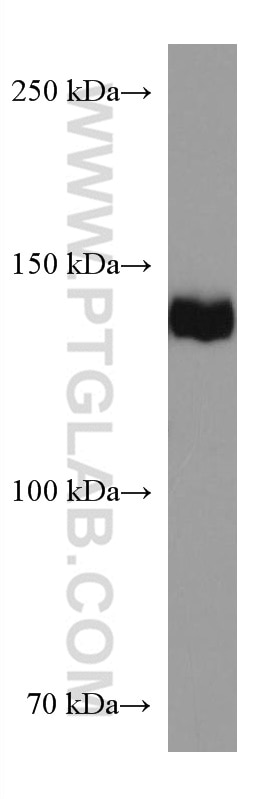Validation Data Gallery
Tested Applications
| Positive WB detected in | HEK-293 cells, NCCIT cells, Jurkat cells, K-562 cells |
Recommended dilution
| Application | Dilution |
|---|---|
| Western Blot (WB) | WB : 1:1000-1:6000 |
| It is recommended that this reagent should be titrated in each testing system to obtain optimal results. | |
| Sample-dependent, Check data in validation data gallery. | |
Product Information
67522-1-Ig targets SALL2 in WB, ELISA applications and shows reactivity with human, mouse, rat samples.
| Tested Reactivity | human, mouse, rat |
| Host / Isotype | Mouse / IgG2a |
| Class | Monoclonal |
| Type | Antibody |
| Immunogen | SALL2 fusion protein Ag30007 相同性解析による交差性が予測される生物種 |
| Full Name | sal-like 2 (Drosophila) |
| Calculated molecular weight | 1007 aa, 105 kDa |
| Observed molecular weight | 140 kDa |
| GenBank accession number | BC024245 |
| Gene Symbol | SALL2 |
| Gene ID (NCBI) | 6297 |
| RRID | AB_2882742 |
| Conjugate | Unconjugated |
| Form | Liquid |
| Purification Method | Protein A purification |
| UNIPROT ID | Q9Y467 |
| Storage Buffer | PBS with 0.02% sodium azide and 50% glycerol , pH 7.3 |
| Storage Conditions | Store at -20°C. Stable for one year after shipment. Aliquoting is unnecessary for -20oC storage. |
Background Information
Sall2 (SALL2, sal-like 2, HSAL2, p150(Sal2)) are mammalian homologs of the Drosophila region-specific home-otic gene spalt (sal), which encodes a zinc finger- containing transcription regulator. Mammalian Sall1 may mediate higher order chromatin structure and may be a component of a distinct heterochromatin-dependent silencing process. Sall2 is a p53-independent regulator of p21 and BAX, and can function in some cell types as a regulator of cell survival. Human Sall2 is present in brain, heart, kidney and pancreas.
Protocols
| Product Specific Protocols | |
|---|---|
| WB protocol for SALL2 antibody 67522-1-Ig | Download protocol |
| Standard Protocols | |
|---|---|
| Click here to view our Standard Protocols |

